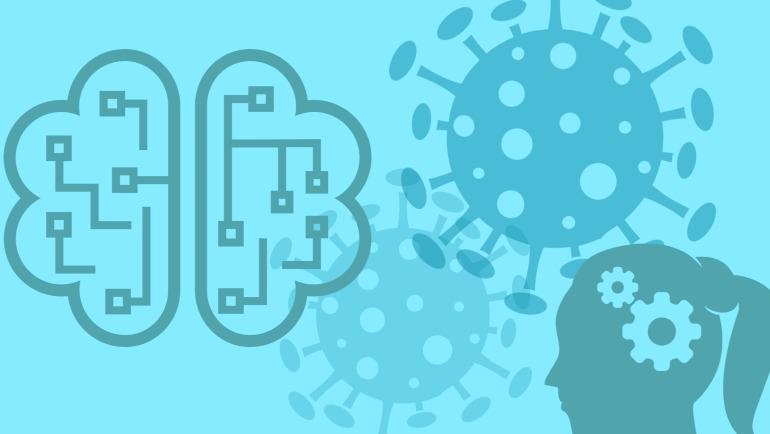
Image Credit: Wayne State University.
However, some children diagnosed with SARS-CoV-2 experienced acute illnesses, such as respiratory failure and Multisystem Inflammatory Syndrome (MIS-C). Almost 80% of children with MIS-C fall critically ill with a mortality rate of 2%–4%.
At present, techniques to identify the spectrum of severity of the disease and to predict which children with SARS-CoV-2 exposure will develop acute illnesses, such as MIS-C, are lacking. Hence, there is an emergent need to create a diagnostic modality to differentiate the various phenotypes of the disease and for risk stratification.
A team of researchers from Wayne State University, led by Dongxiao Zhu, PhD, associate professor of computer science in the College of Engineering, have been creating an artificial intelligence (AI) model to support the early detection of acute SARS-CoV-2 illness in children. The model will help prevent children from falling critically ill from SARS-CoV-2.
Zhu has been collaborating with researchers from Central Michigan University and Penn State University, who are making efforts to characterize and compare the salivary molecular host response in children with various phenotypes of SARS-CoV-2 infections, as well as create and validate a dedicated and sensitive model to predict acute SARS-CoV-2 illness in children.
They have been attempting to build a portable, fast device that measures salivary miRNAs with comparable accuracy to advance the existing technology (qRT-PCR). Zhu and his colleagues will design an AI-supported cloud and mobile system for the early prediction of acute SARS-CoV-2 infection in children.
The goal of the researchers is to create a novel, efficient AI model with cloud and edge intelligence-combining noninvasive biomarkers with social determinants of health and clinical data to enable the early recognition of acute SARS-CoV-2 illness in children.
At present, the acute disease is difficult to identify due to the low rate of occurrence, a spectrum of symptoms simulating other common infections, the lag period prior to the development of severe illness, and lack of a sensitive diagnostic tool. This has resulted in an emergent need to create a non-invasive, sensitive, and fast modality to predict severe illness.
“Our research is critical as we expect to improve outcomes of children with severe SARS-CoV-2 infection via early recognition, timely intervention and appropriate allocation of critical resources,” stated Zhu.
The successful completion of the project will also be significant, as it will lead to the development of a rapid bedside diagnostic device and creation of patient profiles based on individual risk factors which we expect to lead to personalized treatments in the future.
Dongxiao Zhu, Associate Professor of Computer Science, College of Engineering, Wayne State University
The two-year project titled “Severity Predictors Integrating Salivary Transcriptomics and Proteomics with Multi Neural Network Intelligence in SARS-CoV-2 Infection in Children (SPITS MISC)” was awarded funding of $1,433,469 from the Eunice Kennedy Shriver National Institute of Child Health and Human Development of the National Institutes of Health.
The National Institutes of Health awarded eight research grants to create strategies for recognizing children at high risk for MIS-C. Nearly $20 million will be offered for the projects over a period of four years, based on the availability of funds. All eight grants will be eligible to contend for four R33 awards in the future.
Usha Sethuraman, MD, Central Michigan University, and Steven Hicks, MD, PhD, Penn State University Hershey Medical Center are Zhu’s co-principal investigators on the study.